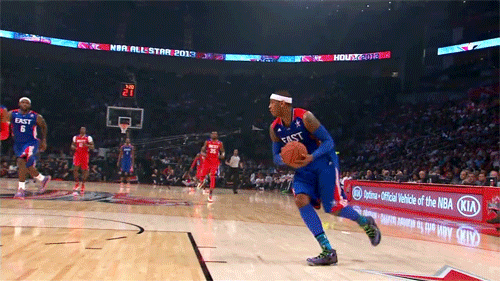

The Internet Weekly
The Internet is the global system of interconnected computer networks that use the Internet protocol suite (TCP/IP) to link devices worldwide. It is a network of networks that consists of private, public, academic, business, and government networks of local to global scope, linked by a broad array of electronic, wireless, and optical networking technologies. The Internet carries an extensive range of information resources and services, such as the inter-linked hypertext documents and applications of the World Wide Web (WWW), electronic mail, telephony, and peer-to-peer networks for file sharing.
The Internet is the global system of interconnected computer networks that use the Internet protocol suite (TCP/IP) to link devices worldwide. It is a network of networks that consists of private, public, academic, business, and government networks of local to global scope, linked by a broad array of electronic, wireless, and optical networking technologies.









Although he was offered other record deals, Mill felt collaborating with T.I. was "an opportunity of a lifetime" and thus chose his label. However, a setback occurred: Mill was arrested, charged with gun and drug possession, and ordered to serve seven months in prison. He was released in early 2009.[6]
Under Grand Hustle, Mill formed a work relationship with the label's resident disc jockey, DJ Drama. Mill and Drama teamed up to release the third edition of Mill's Flamers series. The mixtape, titled Flamers 3: The Wait Is Over, was released on March 12, 2010 and is helmed as a "Gangsta Grillz mixtape".[8][9][10] The mixtape features his promotional single "Rosé Red", which was later remixed with additional verses from fellow American rappers T.I., Rick Ross and Vado.
Early life
Meek Mill was born Robert Rihmeek Williams[2] on May 6, 1987[1] in South Philadelphia, the son of Kathy Williams. He has an older sister, Nasheema Williams. Kathy grew up in poverty and her mother died when she was young. Meek's father was killed when Meek was five years old, apparently during an attempted robbery. His uncle, Robert, described Meek Mill's father as a "black sheep of the family". After her husband's death, Kathy moved with Meek and his sister to North Philadelphia, where they lived in a three-bedroom apartment on Berks Street. Their financial condition was poor and she started cutting hair and doing other jobs to support the family. She also sometimes stole products from supermarkets and sold them.
At home, Meek Mill was shy and rarely spoke. As a kid, he became acquainted with another of his dad’s brothers, Grandmaster Nell, who was a pioneering disc jockey (DJ) in the late-1980s Philadelphia hip-hop scene and influenced Will Smith and DJ Jazzy Jeff. Meek's interest in hip-hop grew. He was also influenced by the independent hip-hop artists Chic Raw and Vodka, whom he used to emulate by watching their DVDs.[3][4]
During his early teenage years, Meek Mill often took part in rap battles, under the pseudonym Meek Millz. He’d often stay up well past midnight filling notebooks with phrases and verses that he’d later draw on. Later he and three friends formed the rap group, The Bloodhoundz.
They bought blank CDs and jewel cases at Kinko's, encouraging friends to burn them with the group's songs and distribute them. When he was 18, while walking to a corner store armed, Meek Mill was arrested for illegally possessing a firearm and was beaten up by the police. Because of the beating, his lips and both eyes became swollen and one of his braids was ripped out. He was charged with assaulting the police after two black cops gave a statement against him in the case, saying he chased them down with a gun and tried to kill them. He was then put on probation.[3][4][5]
Music career
2003–10: Career beginnings
The Bloodhoundz lasted long enough to release four mixtapes.[6] In 2008, Mill released his fourth solo mixtape, Flamers 2: Hottest in tha City, which spawned the promotional singles "I'm So Fly," "Prolli," and "Hottest in the City." Flamers 2 caught the attention of Charlie Mack, founder and President of 215 Aphillyated Records. Mack was so impressed with Mill that he immediately signed him to his management company. During that same year, Meek Mill also met the founder and owner of Grand Hustle Records, Atlanta-based rapper and record executive T.I.[7] T.I. was also impressed by Mill and offered him an opportunity to travel, to meet with him and Warner Bros.


Although he was offered other record deals, Mill felt collaborating with T.I. was "an opportunity of a lifetime" and thus chose his label. However, a setback occurred: Mill was arrested, charged with gun and drug possession, and ordered to serve seven months in prison. He was released in early 2009.[6]
Under Grand Hustle, Mill formed a work relationship with the label's resident disc jockey, DJ Drama. Mill and Drama teamed up to release the third edition of Mill's Flamers series. The mixtape, titled Flamers 3: The Wait Is Over, was released on March 12, 2010 and is helmed as a "Gangsta Grillz mixtape".[8][9][10] The mixtape features his promotional single "Rosé Red", which was later remixed with additional verses from fellow American rappers T.I., Rick Ross and Vado.
Early life
Meek Mill was born Robert Rihmeek Williams[2] on May 6, 1987[1] in South Philadelphia, the son of Kathy Williams. He has an older sister, Nasheema Williams. Kathy grew up in poverty and her mother died when she was young. Meek's father was killed when Meek was five years old, apparently during an attempted robbery. His uncle, Robert, described Meek Mill's father as a "black sheep of the family". After her husband's death, Kathy moved with Meek and his sister to North Philadelphia, where they lived in a three-bedroom apartment on Berks Street. Their financial condition was poor and she started cutting hair and doing other jobs to support the family. She also sometimes stole products from supermarkets and sold them.
At home, Meek Mill was shy and rarely spoke. As a kid, he became acquainted with another of his dad’s brothers, Grandmaster Nell, who was a pioneering disc jockey (DJ) in the late-1980s Philadelphia hip-hop scene and influenced Will Smith and DJ Jazzy Jeff. Meek's interest in hip-hop grew. He was also influenced by the independent hip-hop artists Chic Raw and Vodka, whom he used to emulate by watching their DVDs.[3][4]
During his early teenage years, Meek Mill often took part in rap battles, under the pseudonym Meek Millz. He’d often stay up well past midnight filling notebooks with phrases and verses that he’d later draw on. Later he and three friends formed the rap group, The Bloodhoundz.
They bought blank CDs and jewel cases at Kinko's, encouraging friends to burn them with the group's songs and distribute them. When he was 18, while walking to a corner store armed, Meek Mill was arrested for illegally possessing a firearm and was beaten up by the police.ms & Nightmares


Although he was offered other record deals, Mill felt collaborating with T.I. was "an opportunity of a lifetime" and thus chose his label. However, a setback occurred: Mill was arrested, charged with gun and drug possession, and ordered to serve seven months in prison. He was released in early 2009.[6]
Under Grand Hustle, Mill formed a work relationship with the label's resident disc jockey, DJ Drama. Mill and Drama teamed up to release the third edition of Mill's Flamers series. The mixtape, titled Flamers 3: The Wait Is Over, was released on March 12, 2010 and is helmed as a "Gangsta Grillz mixtape".[8][9][10] The mixtape features his promotional single "Rosé Red", which was later remixed with additional verses from fellow American rappers T.I., Rick Ross and Vado.
Early life
Meek Mill was born Robert Rihmeek Williams[2] on May 6, 1987[1] in South Philadelphia, the son of Kathy Williams. He has an older sister, Nasheema Williams. Kathy grew up in poverty and her mother died when she was young. Meek's father was killed when Meek was five years old, apparently during an attempted robbery. His uncle, Robert, described Meek Mill's father as a "black sheep of the family". After her husband's death, Kathy moved with Meek and his sister to North Philadelphia, where they lived in a three-bedroom apartment on Berks Street. Their financial condition was poor and she started cutting hair and doing other jobs to support the family. She also sometimes stole products from supermarkets and sold them.
At home, Meek Mill was shy and rarely spoke. As a kid, he became acquainted with another of his dad’s brothers, Grandmaster Nell, who was a pioneering disc jockey (DJ) in the late-1980s Philadelphia hip-hop scene and influenced Will Smith and DJ Jazzy Jeff. Meek's interest in hip-hop grew. He was also influenced by the independent hip-hop artists Chic Raw and Vodka, whom he used to emulate by watching their DVDs.[3][4]
During his early teenage years, Meek Mill often took part in rap battles, under the pseudonym Meek Millz. He’d often stay up well past midnight filling notebooks with phrases and verses that he’d later draw on. Later he and three friends formed the rap group, The Bloodhoundz.
They bought blank CDs and jewel cases at Kinko's, encouraging friends to burn them with the group's songs and distribute them. When he was 18, while walking to a corner store armed, Meek Mill was arrested for illegally possessing a firearm and was beaten up by the police.ms & Nightmares
The Internet Weekly
The Internet is the global system of interconnected computer networks that use the Internet protocol suite (TCP/IP) to link devices worldwide. It is a network of networks that consists of private, public, academic, business, and government networks of local to global scope, linked by a broad array of electronic, wireless, and optical networking technologies. The Internet carries an extensive range of information resources and services, such as the inter-linked hypertext documents and applications of the World Wide Web (WWW), electronic mail, telephony, and peer-to-peer networks for file sharing.

Internet use grew rapidly in the West from the mid-1990s and from the late 1990s in the developing world.[4] In the two decades since then, Internet use has grown 100-times, measured for the period of one year, to over one third of the world population.[5][6]Most traditional communications media, including telephony, radio, television, paper mail and newspapers are being reshaped or redefined by the Internet, giving birth to new services such as email, Internet telephony, Internet television music, digital newspapers, and video streaming websites. Newspaper, book, and other print publishing are adapting to website technology, or are reshaped into blogging, web feeds and online news aggregators.
The entertainment industry was initially the fastest growing segment on the Internet.[citation needed] The Internet has enabled and accelerated new forms of personal interactions through instant messaging, Internet forums, and social networking. Online shopping has grown exponentially both for major retailers and small businesses and entrepreneurs, as it enables firms to extend their "bricks and mortar" presence to serve a larger market or even sell goods and services entirely online. Business-to-business and financial services on the Internet affect supply chains across entire industries.
The Internet has no centralized governance in either technological implementation or policies for access and usage; each constituent network sets its own policies.[7] Only the overreaching definitions of the two principal name spaces in the Internet, the Internet Protocol address space and the Domain Name System (DNS), are directed by a maintainer organization, the Internet Corporation for Assigned Names and Numbers (ICANN).
The technical underpinning and standardization of the core protocols is an activity of the Internet Engineering Task Force (IETF), a non-profit organization of loosely affiliated international participants that anyone may associate with by contributing technical expertise.[8]
Internet use grew rapidly in the West from the mid-1990s and from the late 1990s in the developing world.[4] In the two decades since then, Internet use has grown 100-times, measured for the period of one year, to over one third of the world population.[5][6]Most traditional communications media, including telephony, radio, television, paper mail and newspapers are being reshaped or redefined by the Internet, giving birth to new services such as email, Internet telephony, Internet television music, digital newspapers, and video streaming websites. Newspaper, book, and other print publishing are adapting to website technology, or are reshaped into blogging, web feeds and online news aggregators.
The entertainment industry was initially the fastest growing segment on the Internet.[citation needed] The Internet has enabled and accelerated new forms of personal interactions through instant messaging, Internet forums, and social networking. Online shopping has grown exponentially both for major retailers and small businesses and entrepreneurs, as it enables firms to extend their "bricks and mortar" presence to serve a larger market or even sell goods and services entirely online. Business-to-business and financial services on the Internet affect supply chains across entire industries.
The Internet has no centralized governance in either technological implementation or policies for access and usage; each constituent network sets its own policies.[7] Only the overreaching definitions of the two principal name spaces in the Internet, the Internet Protocol address space and the Domain Name System (DNS), are directed by a maintainer organization, the Internet Corporation for Assigned Names and Numbers (ICANN).
The technical underpinning and standardization of the core protocols is an activity of the Internet Engineering Task Force (IETF), a non-profit organization of loosely affiliated international participants that anyone may associate with by contributing technical expertise.[8]



